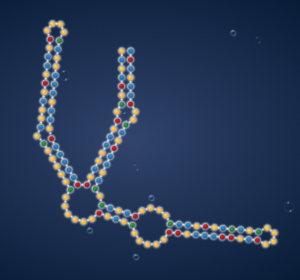 What can the general public contribute to scientific research? Quite a lot as it turns out…
What can the general public contribute to scientific research? Quite a lot as it turns out…
Imagine how many hours are spent worldwide every day playing Bejeweled, or Angry Birds, or Candy Crush. We’d hesitate to even estimate, but it’s safe to say that it’s rather a lot. Now, imagine if all that time was instead spent doing science. We’d likely unlock the secrets of the universe within a year. Ok, we’re obviously being fanciful, but the idea isn’t so far-fetched as you might think. For proof, just look to this Editorial recently published in BMC Biochemistry. In it, we speak to a number of the top players of the online game Eterna which, while not quite unlocking the secrets of the universe, is elucidating how the primary sequence of RNA influences its structure. At the beginning of an Eterna level, players are presented with a graphical representation of a string of adenosine residues and are challenged to manipulate this into a target confirmation solely by changing the residues to other nucleotides and exploiting the interactions between them. The strategies developed by the players to do this are directly related to how the sequence of an RNA molecule controls its structure in real life, and are therefore applicable when designing molecules in the lab.
The key to Etern![]() a though is that, while it is obviously based upon high-level science, it’s also just as addictive as any of the aforementioned apps, and just as accessible. This is highlighted by one of the top game players interviewed for the Editorial:
a though is that, while it is obviously based upon high-level science, it’s also just as addictive as any of the aforementioned apps, and just as accessible. This is highlighted by one of the top game players interviewed for the Editorial:
“I think anybody can be a good Eterna player, but it helps to be competitive, curious and have an addictive personality.”
Here at BMC Biochemistry we only played through the first few levels of the game (all in the name of research, obviously), and already we could feel ourselves being drawn into it. To understand the appeal fully, we’d advise you to head over to the site and try it for yourself (though perhaps not on work time!)
So what does this mean for the future of science? Are citizen scientists, as players of games like Eterna and other similar initiatives, going to take over from conventional researchers? These questions and more are discussed in the editorial. What we’d really like to know though is what you think. Are we entering a brave new world? Have a look at the article, play the game, and let us know your thoughts, either in the comments box below, or by commenting on the Editorial itself.
Comments